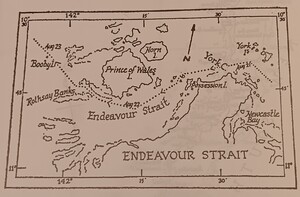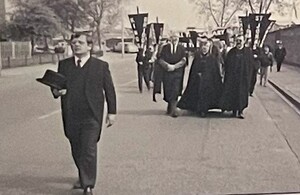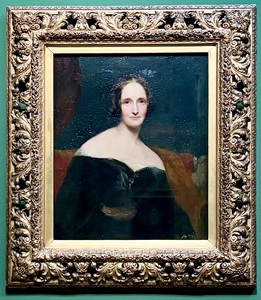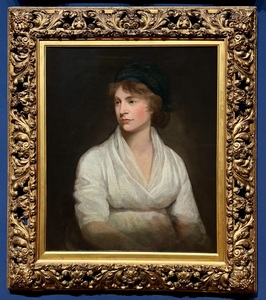
Browse Items (226 total)
Sort by:
-
Map of the HMS Endeavor's path in Society Islands
"Track of the HMS Endeavour in the Society Islands, 16 July-9 August 1769. Reproduced from 'The Endeavour Journal of Joseph Banks, 1768-1771'." -
Map of the HMS Endeavour's path through New South Wales.
"Track of H.M.S. Endeavour exploring part of the coast of New South Wales, 19 April–21 May 1770. Reproduced from 'The Endeavour Journal of Sir Joseph Banks, 1768–1771'." -
Map of the HMS Endeavour's path through the coast of New South Wales.
"Track of H.M.S. Endeavour exploring part of the coast of New South Wales, 17 May–25 August 1770. Reproduced from 'The Endeavour Journal of Sir Joseph Banks, 1768–1771'." -
Map of the HMS Endeavour's path through the Endeavour Strait.
"Track of H.M.S. Endeavour and the passage through Endeavour Strait, 21 August–23 August 1770. Reproduced from 'The Endeavour Journal of Joseph Banks, 1768–1771'." -
March Led by Peter Wade to the Island of Prince Charles
The march led by Peter Wade was meant to signify the “death of the community” with the development of the Docklands and reflects the feelings of the Community. This was done by the Association of Island Communities. -
Martin Buerger, Harold Wyckoff, and Kathleen Lonsdale
Left to right, standing: Martin Buerger, Harold Wyckoff, and Dame Kathleen Lonsdale lecturing to a class in front of a blackboard. -
Mary Shelley
Portrait of Mary Shelley, oil on canvas, c. 1831-1840. -
Mary Shelley - Journal of Sorrow (Audio)
"In the months immediately following Shelley's death Mary lived at Albaro on the outskirts of Genoa. Her only regular companions were her young son, Percy Florence, and the journal she began on 2 October 1822.
To this 'Journal of Sorrow' she confided her innermost thoughts: 'White paper - wilt thou be my confident? I will trust thee fully, for none shall see what I write.' To be sure, Mary would not have shared the entries she wrote immediately after Shelley's death, in which her remorse and despair sometimes approached hysteria. But she left no instructions for the 'Journal of Sorrow' to be destroyed after her death, and was perhaps reconciled to the idea that this, and her other journals, would eventually be seen by other eyes." -
Mary Shelley - Letter to Percy Bysshe Shelley (Audio)
"Shelley was now financially responsible for Mary and Claire as well as Harriet, who was heavily pregnant with their second child. Godwin refused to see him, but drew on his resources. Mary wrote this impassioned letter to Shelley when he was in hiding from his numerous creditors. They could meet only on Sundays, when it was illegal to make arrests for debt."
-
Mary Wollstonecraft
Portrait of Mary Wollstonecraft by John Opie, oil on canvas, c. 1797.








